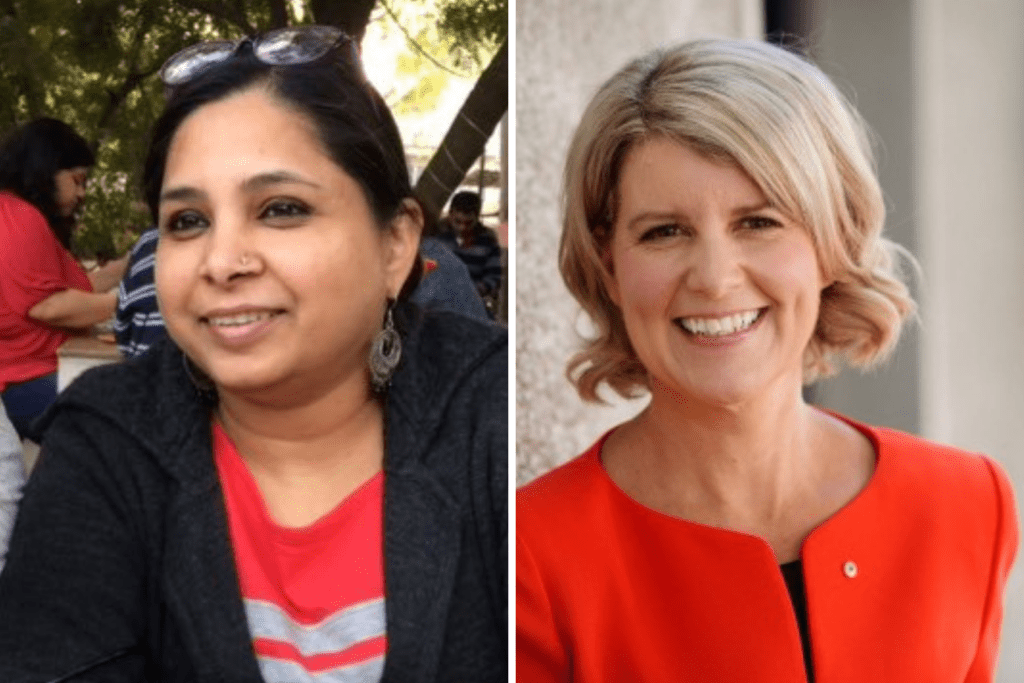During India’s second wave of the pandemic, which peaked in April and May this year, one in every four COVID-19 positive people around the world were in India. The extreme nature of the outbreak saw households with Covid positive people being marked and stigmatised in the community.
Dipali Sharma, ActionAid India Director, shared what this was like in on an online event hosted by ActionAid Australia on Thursday, marking World Humanitarian Day. She was joined by Natasha Stott Despoja, Australia’s representative to the UN’s Committee on the Elimination of Discrimination Against Women (CEDAW).
“What we have gone through in the past months has been really horrifying on a personal level and nationally,” Sharma said. “It seemed as though the world was coming to an end for us.”
Sharma explained that when members of her family in her household became Covid positive, they were not able to access the healthcare support they needed.
“It was very fearful because people were scared of getting the infection, the word would spread like fire that this was a house that was a covid positive family,” she said. “There was stigma attached, no one would climb the stairs to your house.”
Sharma said misinformation relating to the disease and vaccines continues to be widespread in the country, and creating awareness is vital in the country.
“Faith based leaders and women leaders are the ones who are helping us share information, in their own language and their culture, they are helping us play an important role in creating awareness about the pandemic and vaccination.”
According to Sharma, ActionAid is working to empower local women leaders in India, and engage with them at a grassroots level to help improve outcomes for women and the wider the community. One of the major issues is the increase in violence against women.
“Many women are in the urban slum areas were not able to go to work, loss of wages and abusive relations with lack of access to money and health services,” she said.
In India, ActionAid current has 45,000 community volunteers, and more than 50 per cent are women.
“As part of our humanitarian efforts we ensure that we build the leadership of women,” Sharma said.
“We make a conscious effort to identify local women leaders with potential, engage with them and capacity building training.
“Engaging directly, being with women through their ups and downs, listening to their problems and working out solutions together, building their confidence until they can take it forward.”
Also speaking at the ActionAid event, Natasha Stott Despoja sent a message of solidarity to human rights defenders, both in Australia and around the world, especially in places like Afghanistan.
“Women make up a large number of those who risk their lives to save others, in a crisis they are the first to go in and the last ones to leave, they’re needed now more than ever, and governments should ensure they are afforded the protections under international law,” she said.
Stott Despoja spoke about how crises, like the pandemic, provide an opportunity to transform our societies, and this can be in a positive direction if the right decisions are made.
She said women have been the “shock absorbers” of the pandemic, with the virus exacerbating existing issues that affect women, like gender-based violence.
“I’m inspired by the extraordinary strength and resilience of women in times that you can’t imagine being that strong,” she said. “By the women who work day in day out to keep us safe, the efforts that have been made across the world.”
ActionAid is currently running an urgent appeal supporting displaced persons in Afghanistan, providing urgent relief including food and hygiene kits. You can donate here.


